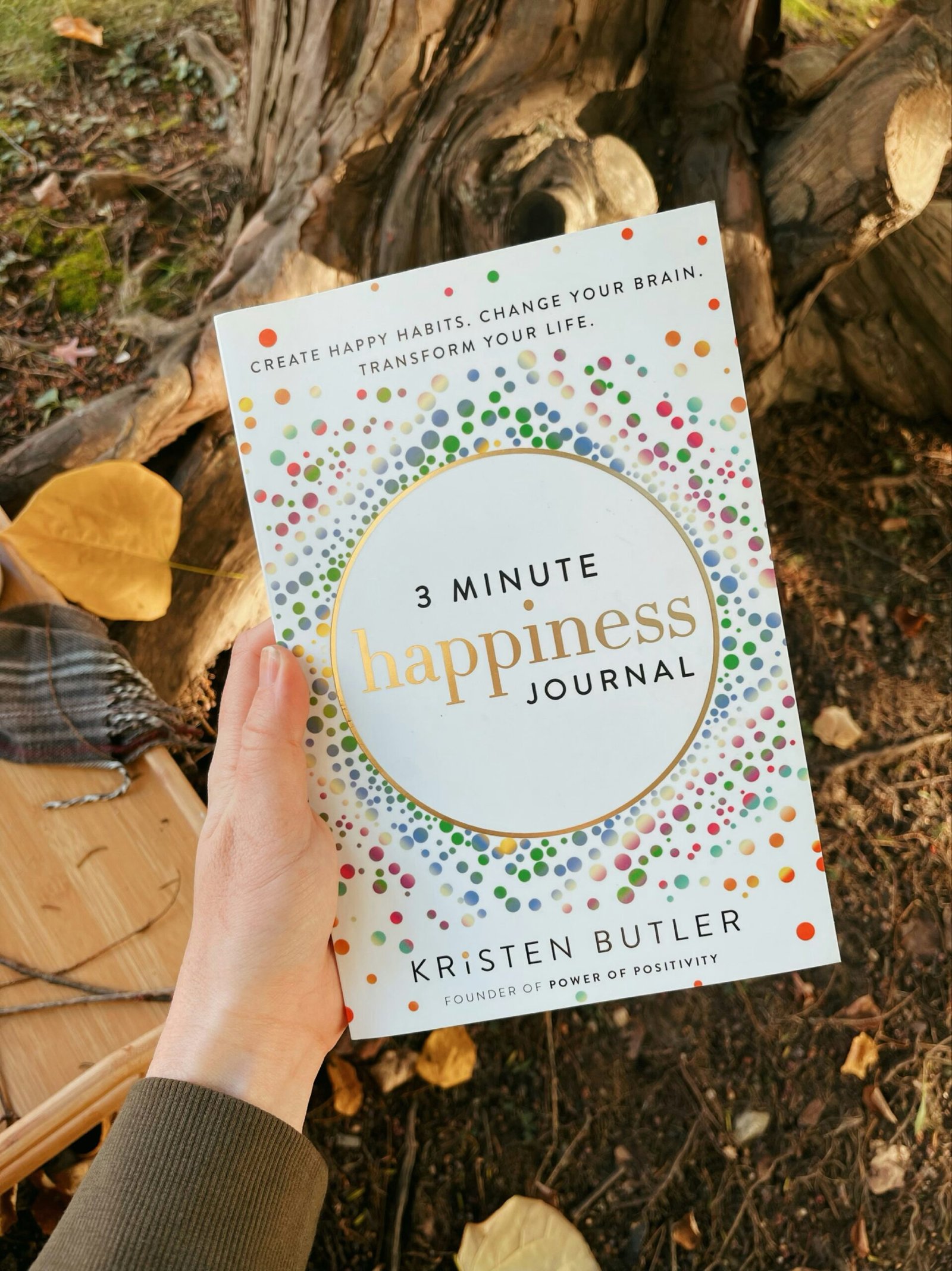
Self-care refers to the practice of taking an active role in protecting one’s own well-being and happiness, particularly during periods of stress. It encompasses a broad range of activities that promote mental, emotional, and physical health. The importance of self-care has gained significant recognition in contemporary society, as an increasing number of individuals acknowledge that maintaining optimal health requires intentional efforts directed towards nurturing oneself. In a world characterized by rapidity and constant demands, prioritizing self-care is essential for fostering overall well-being.
Historically, self-care was often viewed as a luxury or an indulgence; however, it is now understood to be a necessity that contributes significantly to one’s happiness and fulfillment. Engaging in self-care practices not only aids in the alleviation of stress and anxiety but also routes to a deeper understanding of personal needs and desires. This shift in perception underscores the significance of integrating self-care into daily routines, as neglecting this aspect can lead to burnout and deteriorating mental health.
The connection between self-care and happiness is becoming increasingly evident. Various studies have shown that when individuals engage in regular self-care activities, they report higher levels of life satisfaction and emotional resilience. Activities such as mindfulness meditation, exercise, adequate sleep, and maintaining social connections play a crucial role in enhancing one’s mood and overall outlook on life. As awareness around mental health continues to grow, the emphasis on self-care practices is seen as a vital part of achieving a balanced and joyful existence. With the right focus and determination, individuals can cultivate habits that not only enrich their lives but also foster a sustainable approach to enduring happiness.
The Science of Happiness
Understanding the relationship between self-care rituals and psychological well-being is essential in fostering an enriching lifestyle. Various studies indicate that engaging in self-care not only enhances individual happiness but also contributes positively to mental health and resilience. Self-care can be defined as activities that individuals engage in to promote their own well-being, which encompasses physical, emotional, and mental domains. The positive effects of self-care practices on mood regulation, stress reduction, and overall life satisfaction have been well documented.
Research suggests that regular self-care activities can lead to significant improvements in mood and emotional stability. For instance, mindfulness and meditation have emerged as popular self-care rituals. Studies have shown that mindfulness practices can reduce stress and anxiety levels by promoting present-moment awareness and acceptance. Consequently, participants in various studies reported heightened feelings of joy and contentment after having engaged in such practices regularly.
Additionally, engaging in physical activities, such as yoga or regular exercise, is closely linked to increased happiness levels. Exercise releases endorphins, often referred to as “feel-good” hormones, which foster a sense of euphoria and overall well-being. Furthermore, research highlights the importance of social self-care, including the maintenance of healthy relationships, as this is also instrumental in boosting emotional health and life satisfaction.
Furthermore, establishing structured self-care routines has been noted to encourage a sense of predictability and stability in individuals’ lives, contributing to reduced feelings of anxiety. When people dedicate time to care for themselves, whether through hobbies, relaxation, or personal reflection, they cultivate a greater appreciation for their lives, leading to enhanced overall happiness. Thus, it is clear that self-care rituals significantly intersect with the scientific principles of happiness, ultimately fostering a more fulfilling existence.
Morning Rituals for a Positive Start
Starting the day with a set of intentional morning self-care rituals can significantly impact one’s overall happiness and productivity. These practices not only foster a sense of well-being but also cultivate a positive mindset that can carry through the day. One of the most beneficial habits is meditation. Taking even just five to ten minutes in the morning to focus on breathing or to engage in mindfulness exercises can reduce stress and promote a sense of calm. This clarity of mind allows individuals to approach their daily tasks with increased focus and a more positive outlook.
Another effective morning ritual is journaling. By dedicating time to reflect on thoughts and feelings, one can gain insights into personal goals or relationships. Journaling can also serve as a platform for setting intentions for the day, which can be particularly empowering. Writing down goals, whether they are personal or professional, transforms abstract thoughts into actionable plans, thus enhancing motivation and clarity.
Practicing gratitude is yet another powerful self-care ritual. Taking a few moments to list things one is thankful for can dramatically shift one’s perspective. This act not only encourages appreciation for the present moment but also fosters emotional resilience in challenging situations. Gratitude exercises have been shown to improve overall happiness by promoting a more optimistic view of life and its events.
Integrating these practices into a cohesive morning routine can provide a structured approach to self-care. When blended thoughtfully, meditation, journaling, and gratitude exercises can work synergistically to improve mood and set a constructive tone for the day. By committing to a morning ritual focused on self-care, individuals can enhance their happiness levels while positively influencing their productivity.
Mindfulness and Meditation Practices
Mindfulness and meditation have garnered significant attention as essential self-care practices in today’s fast-paced world. These techniques encourage individuals to cultivate a present-moment awareness that can significantly enhance mental clarity, emotional stability, and overall happiness. By integrating mindfulness and meditation into daily routines, one can create a buffer against stress, and promote a deeper connection to oneself and the surrounding environment.
There are various techniques individuals can employ to incorporate mindfulness and meditation into their lives. One popular method is mindfulness meditation, which involves focusing attention on the breath, bodily sensations, or the present moment without judgment. A simple practice may include sitting quietly for a few minutes each day, paying attention to the rise and fall of the breath, and gently bringing the mind back if it wanders. This not only improves concentration but fosters a sense of calm amidst life’s challenges.
Another effective technique is the practice of mindful walking, which allows individuals to connect with nature while simultaneously fostering awareness. During a walk, one can focus on the sensations of each step, the sounds of the environment, and the feeling of the wind. By immersing oneself in these experiences, the act of walking becomes a meditative ritual that enhances both emotional well-being and overall happiness.
Additionally, incorporating mindfulness into daily activities, such as eating, can aid in developing a deeper appreciation for food while fostering healthier habits. Techniques like mindful eating involve savoring each bite, noticing textures and flavors, and being aware of one’s physical sensations of hunger and fullness.
By embracing these mindfulness and meditation practices, individuals can experience a profound shift in their mental and emotional states, leading to increased happiness and decreased stress. The journey toward greater well-being begins with the simple act of being present.
Physical Self-Care: Nourishing the Body
Physical self-care is a crucial aspect of overall well-being and happiness. It encompasses various practices aimed at nourishing the body, which can significantly influence mental health and emotional stability. A critical element of physical self-care is proper nutrition. Consuming a balanced diet rich in fruits, vegetables, lean proteins, and whole grains not only fuels the body but also supports cognitive functions and mood regulation. Studies have indicated that certain nutrients, such as omega-3 fatty acids and vitamins like B12, play vital roles in brain health, thereby contributing to a more positive outlook on life.
In addition to nutrition, regular exercise is another essential aspect of physical self-care. Engaging in physical activity promotes the release of endorphins, often referred to as “feel-good hormones.” Whether through walking, yoga, or more intensive workouts, finding an enjoyable form of exercise can lead to improved mood, increased energy levels, and better overall health. It is essential to incorporate regular movement into daily routines, establishing it as a non-negotiable component of self-care.
Another fundamental practice in physical self-care is ensuring adequacy of sleep. Quality sleep is vital for mental clarity, emotional stability, and physical health. Prioritizing sleep hygiene, which includes establishing a consistent sleep schedule and creating a restful environment, can enhance sleep quality. The benefits of restorative sleep extend beyond feeling rested; it profoundly impacts mood regulation and stress management, leading to a more fulfilled life.
Incorporating these physical self-care practices into one’s daily routine fosters healthier habits that contribute to happiness and overall well-being. By nourishing the body through balanced nutrition, regular exercise, and sufficient sleep, individuals can create a strong foundation for improved mental health and emotional resilience.
Creative Expression as a Self-Care Ritual
Creative expression serves as a powerful tool in the realm of self-care, offering individuals a unique avenue to enhance their mental and emotional well-being. Engaging in activities such as painting, writing, or playing music not only provides a medium for self-exploration but also acts as a therapeutic escape from the daily pressures of life. These creative outlets allow for the free expression of thoughts and feelings, creating a profound connection between the individual and their innermost self.
Studies have shown that participating in creative activities can result in significant mood improvement. For instance, engaging in painting can help individuals express emotions that may be difficult to verbalize, ultimately reducing stress and anxiety levels. Similarly, writing allows for the processing of complex emotions and situations, providing clarity and a sense of achievement upon completion. Moreover, playing music, whether through instruments or vocals, can evoke powerful feelings and serve as a form of emotional release, which contributes to an overall sense of happiness.
The act of creating something can also enhance self-esteem and personal satisfaction. As individuals immerse themselves in creative expression, they tap into their unique talents, cultivating a sense of pride in their abilities. This may encourage a more optimistic outlook on life and instill confidence, further reinforcing the positive effects associated with these self-care rituals. Hence, creative expression not only alleviates feelings of sadness or overwhelm but also fosters resilience and a deeper understanding of one’s self.
In essence, integrating creative pursuits into daily self-care routines can serve as a vital means of nurturing emotional health. By embracing creativity, individuals can unlock new pathways to happiness, facilitating not only relaxation but also personal growth and fulfillment.
Connecting with Nature
Engaging with nature is fundamentally linked to improvements in mental health and overall well-being. Numerous studies have shown that spending time outdoors can significantly contribute to an individual’s happiness. Nature offers a refreshing contrast to urban environments, providing a sense of tranquility and a space for reflection. For many, the sights, sounds, and smells associated with natural settings can prompt feelings of peace and contentment, while also reducing stress and anxiety levels.
Regular exposure to nature may also promote physical health benefits, as outdoor activities encourage movement and physical fitness. Hiking, walking, or simply sitting in a park can enhance cardiovascular health and improve mood through the release of endorphins. These activities not only facilitate a deeper connection with the environment but also offer opportunities for social interaction when shared with friends or family, further enhancing well-being.
To incorporate nature into your self-care routine, consider establishing simple yet effective rituals. Start by dedicating a few minutes each day to step outside, whether it involves taking a brisk walk in a nearby park or merely enjoying your morning coffee on a patio. If time allows, plan longer excursions into natural settings such as forests, mountains, or beaches on weekends. This not only allows you to disconnect from daily distractions but also nurtures a profound appreciation for the natural world.
You may also find that engaging in mindful activities such as nature meditation or journaling about your experiences can deepen your appreciation for your surroundings. Integrating these practices into your self-care routine will not only bolster your mood but also enhance your overall quality of life, fostering a lasting connection with the environment that promotes happiness and well-being.
Building Social Connections
Social connections play a pivotal role in fostering happiness and overall well-being. Engaging with friends, family, and broader social networks contributes significantly to improved mental health, enhanced self-esteem, and an increased sense of belonging. Having strong relationships can act as a buffer against stress and help individuals navigate life’s challenges more effectively. Building and nurturing these connections is a vital aspect of a comprehensive self-care routine that can lead to a more fulfilled and joyful life.
To cultivate meaningful relationships, start by prioritizing quality time with loved ones. This can be as simple as regular phone calls, video chats, or scheduling in-person meet-ups. Engaging in shared activities strengthens bonds, whether it’s cooking a meal together, participating in a fun hobby, or enjoying outdoor adventures. Actively listening and being present during these interactions demonstrates care and respect, thereby reinforcing the connection.
In addition to strengthening existing relationships, consider expanding your social circle. Joining clubs, attending community events, or participating in local organizations are excellent ways to meet new people with shared interests. Volunteering for a cause you are passionate about not only helps build new connections but also enhances your sense of purpose, further promoting happiness. Online platforms can also facilitate group interactions, particularly for those who may have mobility issues or geographical constraints.
Additionally, maintaining effective communication is crucial in preserving relationships. Open dialogue about feelings, needs, and boundaries fosters trust and understanding. It is vital to recognize that some relationships may require more effort than others. Be patient and willing to invest time in nurturing these bonds while also being mindful of your emotional energy.
Ultimately, integrating social self-care into your routine can significantly enrich your life and enhance your happiness. Cultivating and maintaining strong social connections should be regarded as an essential component of a holistic self-care approach.
Creating a Personalized Self-Care Plan
Establishing a self-care plan is an important step toward enhancing your overall well-being and happiness. To begin, it is essential to evaluate your current state of physical, emotional, and mental health. Consider keeping a journal to track how you feel on different days, identifying patterns or activities that lead to increased happiness or stress. This reflection will help you recognize your specific needs and preferences, allowing you to tailor your self-care plan effectively.
After assessing your well-being, the next step is to set realistic goals. These goals should reflect both short-term and long-term aspirations regarding your self-care practices. For example, if you recognize that you feel more relaxed after meditation, you might aim to incorporate a five-minute meditation session into your daily routine. Breaking larger objectives into smaller, achievable tasks promotes a sense of accomplishment, ultimately enhancing your motivation to maintain your self-care regimen.
Consistency is key in any self-care plan. Establish a routine that integrates self-care activities seamlessly into your daily life. Whether it’s dedicating a few moments each morning for mindfulness or setting aside specific times throughout the week for physical exercise, find what works best for you. Utilizing reminders or creating a visual schedule can also help reinforce these practices, making them an integral part of your life.
Additionally, don’t hesitate to adjust your self-care plan when necessary. Life circumstances change, and your self-care strategies should evolve alongside your needs. Regularly revisiting your goals and routines ensures that they remain relevant and effective in promoting happiness and well-being. Remember, the most effective self-care plan is one that resonates with you personally and aligns with your lifestyle.






